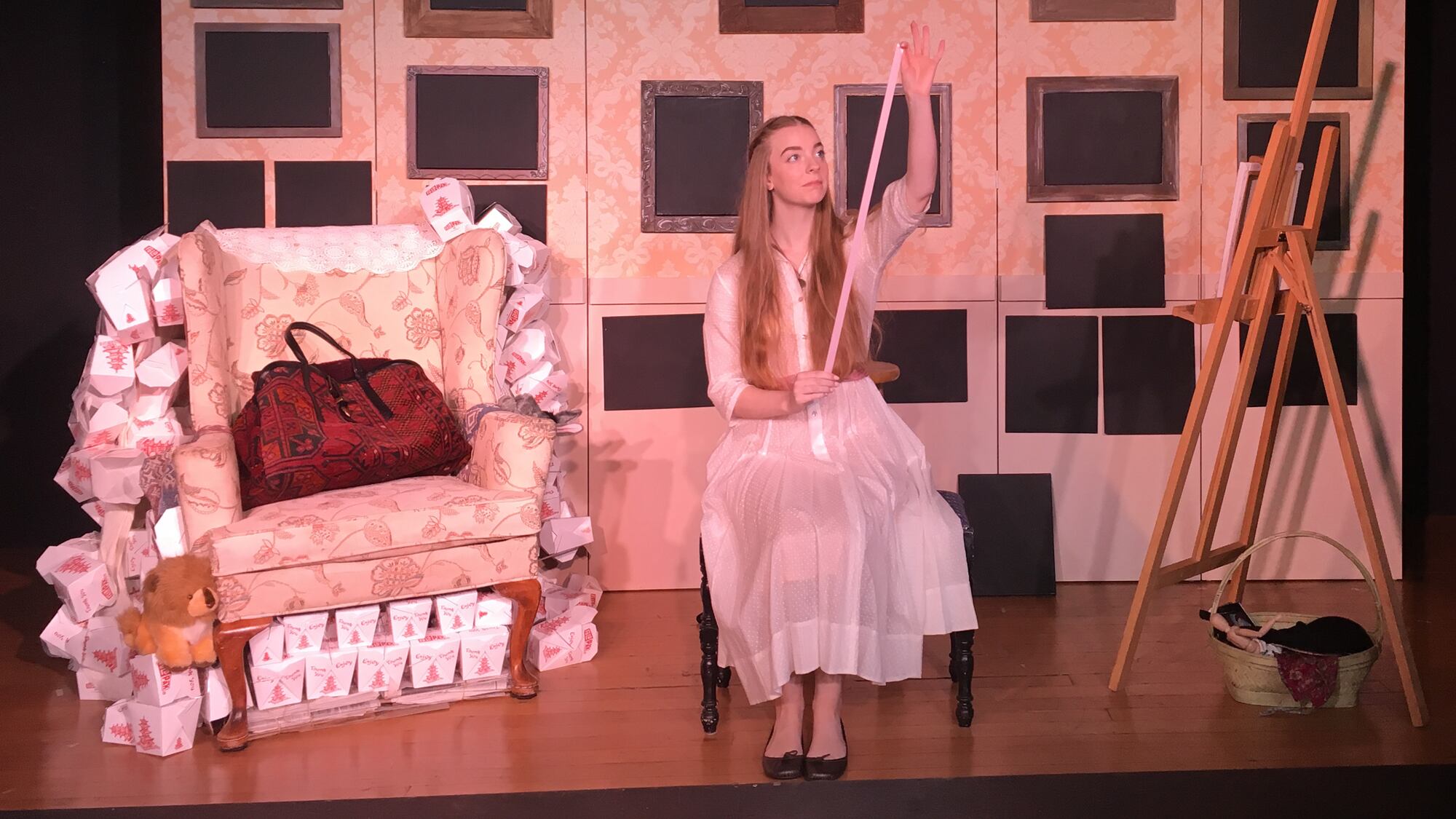One of the finest performances in The Three Sisters of Weehawken is delivered not by an actor, but by a prop: a massive pile of Chinese-food boxes that mounts higher and higher as the title siblings descend deeper and deeper into misery. It's a sight gag that, like the play itself, is at once sobering and darkly hilarious.
Weehawken is the debut play from director Rose Bonomo's theater company, which has taken up residence in Old Town comedy venue the Siren Theater. It's a promising start to the company's three-play season. Written by Deborah Zoe Laufer, Weehawken is a revisionist take on The Three Sisters, Anton Chekhov's tale of a trio of siblings who long to escape their provincial Russian home and travel to Moscow. Laufer's characters want to leave Weehawken, N.J., for Manhattan. They never make good on that dream, but Weehawken succeeds in its mission: to strike a sweet yet scalding spot between comedy and tragedy.
The play begins with Olga (Tamara Monique Walker) reminiscing about her father's death, although it is she and her sisters, Irina (Eleanor Herreid-O'Neil) and Masha (Janet Scanlon), who seem lifeless. Sequestered in a cramped drawing room, they repeatedly sigh with pleasure at the thought of moving out, yet repeatedly refuse to leave. Their lives are not free of incident—Irina rebels against the dictatorial Masha, and Olga's teaching job is threatened by drug addiction. But their story ultimately becomes a potent metaphor for how a rampant fear of the unknown can escalate into Howard Hughes-style madness.
A lesser cast and crew might have allowed the sisters' torment to suffocate the audience, but Bonomo and the actors successfully tap into the story's savage wit. Particularly delightful is the comedic self-seriousness Scanlon brings to Masha's artistic pretensions. With lordly importance, she declares in one scene that she doesn't want her paintings "to be exposed to the unwashed masses." As Olga, Walker's delivery is hilariously matter-of-fact. She describes stealing a child's Ritalin and replacing it with Tic Tacs so casually that she may as well be talking about taking out the garbage.
The production's ingenious set is a joke in its own right. The set's walls are pale pink and covered in Masha's delightfully horrid paintings, colorless eyesores that are supposedly portraits of Irina. As the play progresses, the walls literally close around the sisters as their hopes of escape dim. It also cleverly reflects the way Laufer streamlines Chekhov's narrative. By eliminating every male character in the original play, she transforms a story of women suffering in a male-dominated world into a more intimate exploration of women who, while certainly in pain, are still the masters of their own destinies.
The play has some limitations. The ceaseless jokes about the sisters' inability to walk out the front door wear thin, and the claustrophobic staging may make you miss the sprawl of intrigue and romance that defined Chekhov's version of the tale. Yet The Three Sisters of Weehawken is so compelling and entertaining that, like Masha, Olga and Irina, you may find yourself reluctant to leave that drawing room behind.
SEE IT: The Three Sisters of Weehawken is at the Siren Theater, 315 NW Davis St., rosieroseproductions.com. 8 pm Saturday, 2 pm Sunday, through March 31. $20.
